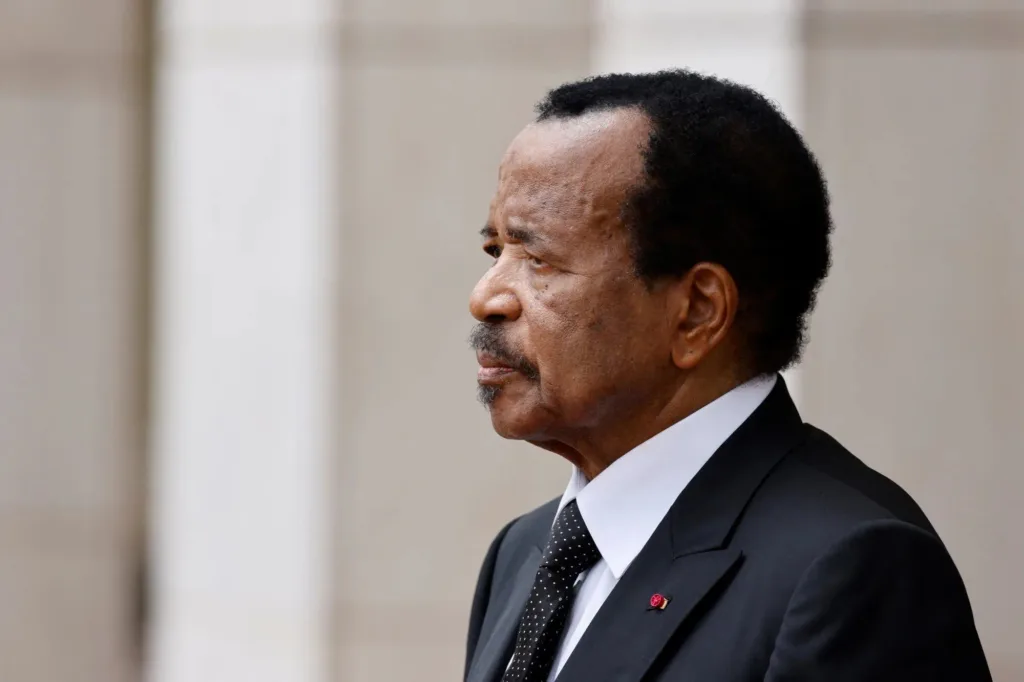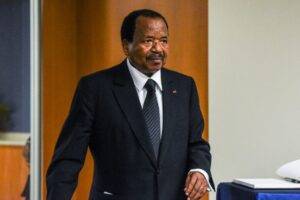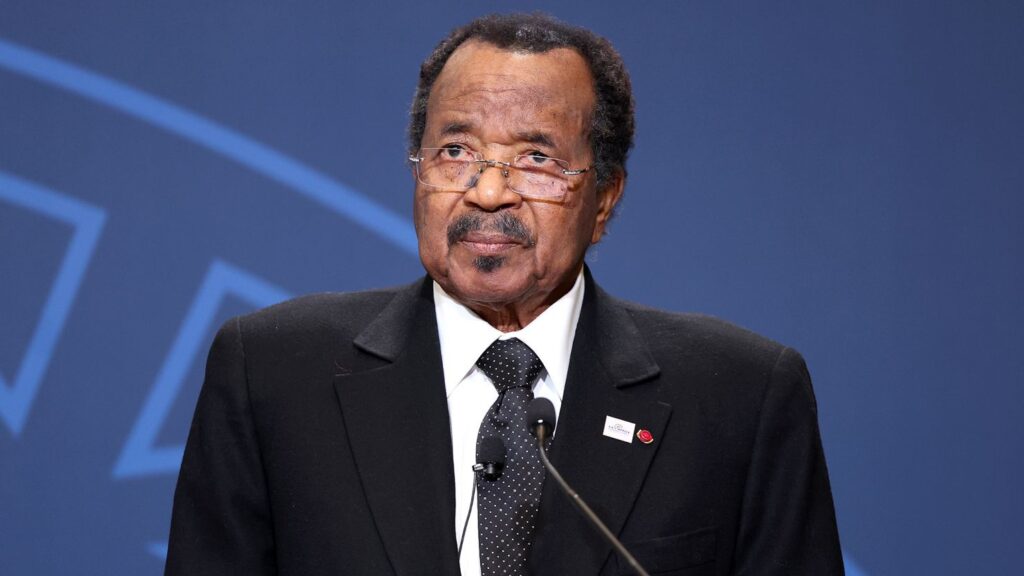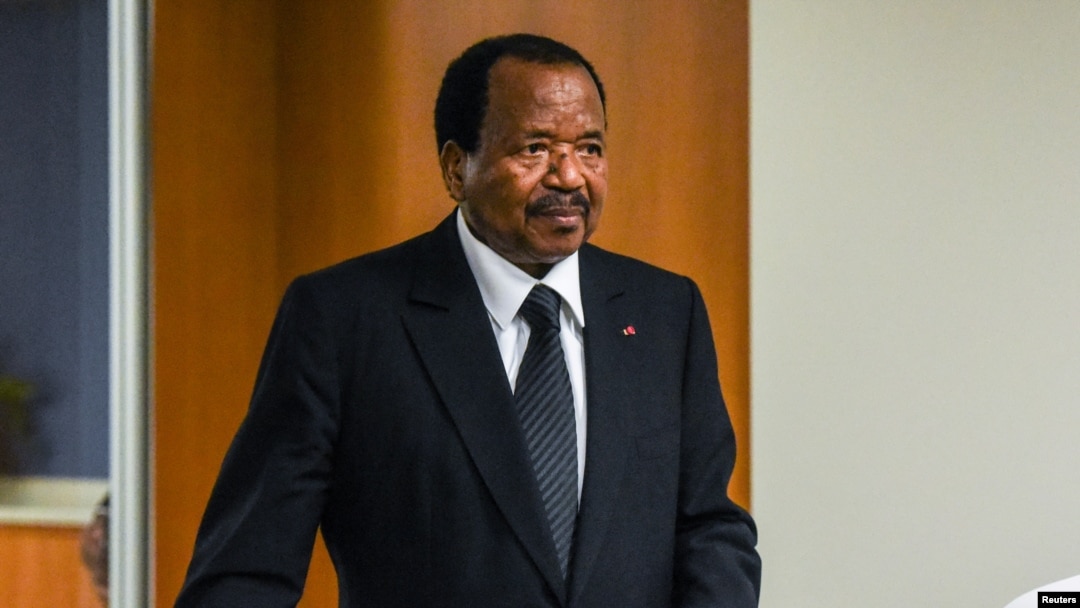Cameroon’s Constitutional Council has officially declared President Paul Biya the winner of the country’s 2025 presidential election, securing his eighth consecutive term in office at the remarkable age of 92. The announcement, made in the capital city of Yaoundé, extends Biya’s reign that began in 1982, making him one of the world’s longest-serving and most enduring heads of state. The Council’s ruling has drawn mixed reactions from across the political spectrum, with government supporters celebrating what they call a victory for stability, while opposition figures and civil society groups decry the outcome as the product of a deeply flawed and undemocratic system.
According to the Constitutional Council’s final results, President Biya won more than 70 percent of the total votes cast, a figure that mirrors previous elections in which he has consistently maintained wide margins of victory. His closest rival, Maurice Kamto of the Cameroon Renaissance Movement (MRC), secured just under 20 percent of the vote. Other opposition candidates, including Cabral Libii of the National Union for Integration Towards Solidarity and Prosperity (UNIVERS) and Joshua Osih of the Social Democratic Front (SDF), finished far behind, splitting the remaining ballots among themselves.
The opposition quickly rejected the results, citing widespread irregularities, voter intimidation, and ballot manipulation. Kamto’s campaign issued a statement condemning what it called “a mockery of democracy,” alleging that voting was marred by ghost polling stations, inflated voter rolls, and security force interference, particularly in restive regions like the English-speaking Northwest and Southwest, where conflict between separatist groups and government forces continues. Independent observers also reported logistical challenges, limited access to certain polling areas, and a heavy security presence that, while ensuring order, raised concerns about voter intimidation.

Despite these controversies, the Constitutional Council declared the election valid and binding, asserting that all complaints filed by opposition parties lacked sufficient evidence to alter the final outcome. In his televised victory address, President Biya thanked Cameroonians for what he described as “a renewed mandate to safeguard peace and stability” in the face of domestic and international challenges. “Cameroon has once again chosen continuity over chaos, unity over division,” he said. “I pledge to serve every citizen, regardless of their political affiliation, and to continue leading our nation on the path of progress and peace.”
Biya, who has ruled Cameroon since 1982 following the resignation of the country’s first president, Ahmadou Ahidjo, is now entering his 43rd year in power. During his decades-long tenure, he has survived multiple coup attempts, waves of political unrest, and calls for democratic reform. Once celebrated for maintaining stability in a region often characterized by political volatility, Biya has in recent years become a symbol of Africa’s struggle with entrenched leadership and constitutional manipulation. In 2008, his government controversially amended the constitution to remove presidential term limits, a move that paved the way for his continued rule.
Reactions to his latest victory were deeply polarized. In Yaoundé and Douala, supporters of the ruling Cameroon People’s Democratic Movement (CPDM) took to the streets waving party flags and chanting pro-Biya slogans. “He is the father of the nation,” said one supporter. “Under him, we have had peace and development. There is no better alternative.” Meanwhile, opposition supporters in several urban centers were dispersed by security forces as they attempted to stage protests, denouncing what they called “electoral robbery.” Several opposition figures were reportedly detained during the demonstrations, sparking renewed concerns about the government’s tolerance for dissent.
International responses were cautious. The African Union and the Economic Community of Central African States (ECCAS) both issued statements urging calm and encouraging all parties to respect the legal processes while calling on the government to engage in dialogue with opposition leaders. Western governments, including the United States and the European Union, acknowledged the announcement of results but stopped short of congratulating Biya personally. Instead, they emphasized the importance of democratic reforms, human rights protections, and the need for inclusive governance.

Observers say Biya’s continued rule presents both stability and stagnation for Cameroon. On one hand, his leadership has ensured a measure of continuity in a geopolitically sensitive region bordered by Nigeria, Chad, and the Central African Republic. On the other, critics argue that his administration has become synonymous with corruption, economic inequality, and authoritarianism. Despite being classified as a lower-middle-income country with rich natural resources, including oil and timber, Cameroon struggles with high unemployment, poor infrastructure, and an underfunded healthcare system.
The country’s English-speaking regions remain a major source of instability. Since 2016, separatist fighters seeking to establish an independent state known as “Ambazonia” have waged a deadly conflict against government forces. The crisis has displaced over 700,000 people and left thousands dead. Many Anglophones accuse Biya’s government of marginalization and repression, pointing to the centralization of power in Yaoundé and the dominance of French-speaking elites in government institutions. Analysts say Biya’s re-election offers little hope for a political settlement, as his administration has historically favored military solutions over negotiation.
Meanwhile, questions about succession loom large. At 92, Biya’s health has become a matter of speculation, though the presidency insists he remains “in excellent condition.” He is rarely seen in public and is believed to spend extended periods abroad, particularly in Switzerland. Critics argue that the country’s institutions are heavily personalized around Biya, leaving the state vulnerable to instability should a sudden transition occur. His son, Franck Biya, has been increasingly visible in political circles, fueling rumors that he is being groomed as a potential successor, though the presidency has not confirmed any such plans.

Economically, Cameroon faces mounting challenges. The country’s debt burden has risen sharply in recent years, exacerbated by reduced oil revenues and the lingering effects of the COVID-19 pandemic. While the government touts infrastructure projects such as the Lom Pangar hydroelectric dam and the Kribi deep seaport as signs of progress, critics say such developments have disproportionately benefited political elites and foreign investors rather than ordinary citizens.
As President Biya embarks on another seven-year term, many Cameroonians are torn between resignation and hope. For some, his re-election represents continuity in uncertain times; for others, it signals the entrenchment of a political dynasty that has long outlived its promise. With opposition movements fragmented, the media constrained, and civic space shrinking, the question for Cameroon is not only how long Biya can continue to rule, but what will happen to the nation once he no longer can.
Paul Biya Proclaimed Provisional Winner of Cameroon’s 2025 Presidential Election

